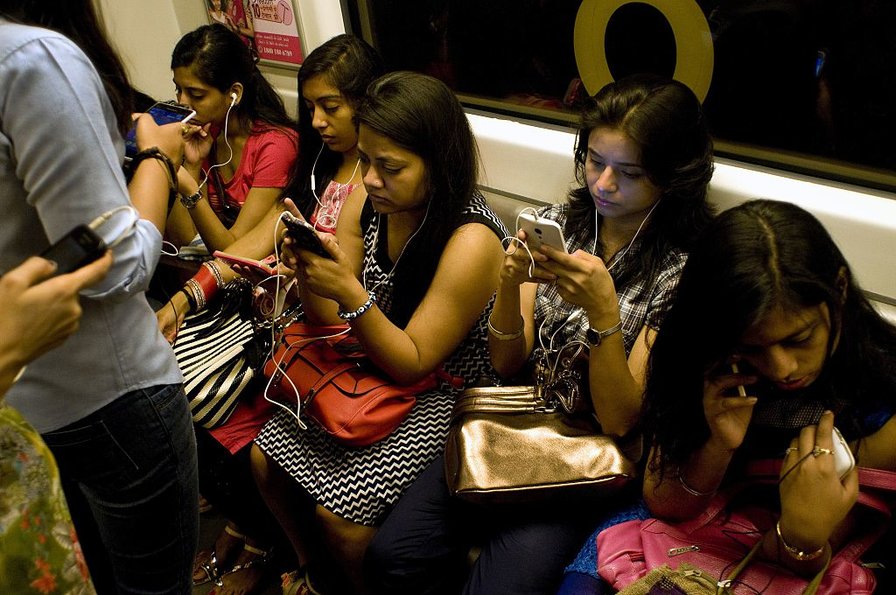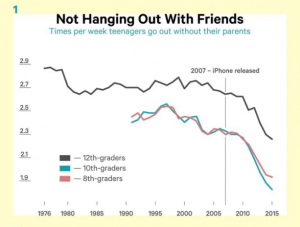
Author of iGen on CNN: Kids and Screens — “We’re on the Brink of the Worst Mental Health Crisis in Decades.”
For many years already, tech inventors have been sending their kids to “low-tech” schools and restricting tech use at home. In the meantime, at the advice of tech companies, public schools have spent a collective $60B to become “high tech.” Students are required to use screens for long periods in and out of the classroom as part of their education. Author of iGen on CNN Kids and Screens — “We’re on the Brink of the Worst Mental Health Crisis in Decades.”.
Some tech inventors have started expressing remorse in creating screen addiction issues with their products and are trying to raise awareness. Regardless, it gets lost in a sea of marketing for more tech designed for kids and everyone else.
Dr. Jen Twenge, author of “iGen” has been interviewed many times already regarding tech-related mental health issues in kids. Her most recent CNN interview is heartbreaking.
“We’re on the brink of the worst mental health crisis in decades.”
According to Dr. Twenge’s research, the increase in teens’ mental health issues coincides with the introduction of smartphones and other tech devices being marketed and eventually used by almost everyone – including very young children. Those who seem to be profiting from technology continue insisting that we wait for more research before we reduce the amount of tech used by kids in schools and everywhere else and blame genetics and/or parents who won’t control their kids’ use of screens when it’s not for school work.
Prolonged tech use can also cause mental (and other) health issues due to
- Artificial light from screens.
- Wireless WiFi radiation exposure.
Outside of the U.S., other countries have already been addressing tech use and health issues – especially in children. They are following “The Precautionary Principle” and are being proactive. Unfortunately, in the U.S., Tech giants are asking us all to continue ignoring the obvious instead of taking the bull by the horns and reducing the amount of technology by kids used in school and, of course, everywhere else.
“Born between 1995 and 2012, members of this generation are growing up with smartphones, have an Instagram account before they start high school, and do not remember a time before the internet. The Millennials grew up with the web as well, but it wasn’t ever-present in their lives, at hand at all times, day and night. iGen’s oldest members were early adolescents when the iPhone was introduced, in 2007, and high-school students when the iPad entered the scene, in 2010. A 2017 survey of more than 5,000 American teens found that three out of four owned an iPhone.”
-iGen Author & San Diego University Psychology Professor Jean M Twenge
Twenge’s data offer stark indicators of her thesis: smartphones are messing with our heads.

Every addiction manifests differently in society. Depression levels among eighth graders increased by 27 percent for heavy social media users. Teens spending three hours or more a day on their devices are 35 percent more likely to consider suicide. Over the past decade, Twenge notes, homicide rates have dropped among teens. Suicide rates have moved in the opposite direction. Twenge adds:
“I’ve seen friends post photos of their infants staring into iPads. (“How cute!”) Such an environment sets up the child to be a Twenge statistic. I also have friends who strictly limit their children’s screen time. From my experiences, these children tend to look me in the eye when speaking to me, something many adults have trouble doing.”
Twenge believes the data suggest parents need to monitor more. But how does that happen when the parents themselves are addicted?
One study asked college students with a Facebook page to complete short surveys on their phone over the course of two weeks. They’d get a text message with a link five times a day, and report on their mood and how much they’d used Facebook. The more they’d used Facebook, the unhappier they felt.
A recently leaked Facebook document indicated that the company had been touting to advertisers its ability to determine teens’ emotional state based on their on-site behavior, and even to pinpoint “moments when young people need a confidence boost.”
As much as Twenge’s info is alarming and compelling, we still need to factor in vaccines and pharmaceuticals that are also contributing to this mental health crisis. Technology addiction is only PART of the problem.
Sources:
https://bigthink.com/21st-century-spirituality/smartphones-could-be-leading-to-a-mentalhealth-crisis

 My First Amazing Ayahuasca Experience
My First Amazing Ayahuasca Experience  Pine Needle Tea
Pine Needle Tea  The REAL Controllers of Humanity: The Papal Bloodlines
The REAL Controllers of Humanity: The Papal Bloodlines  Is it Global Warming or Cooling?
Is it Global Warming or Cooling?  Gun Rights and Obama Examined
Gun Rights and Obama Examined